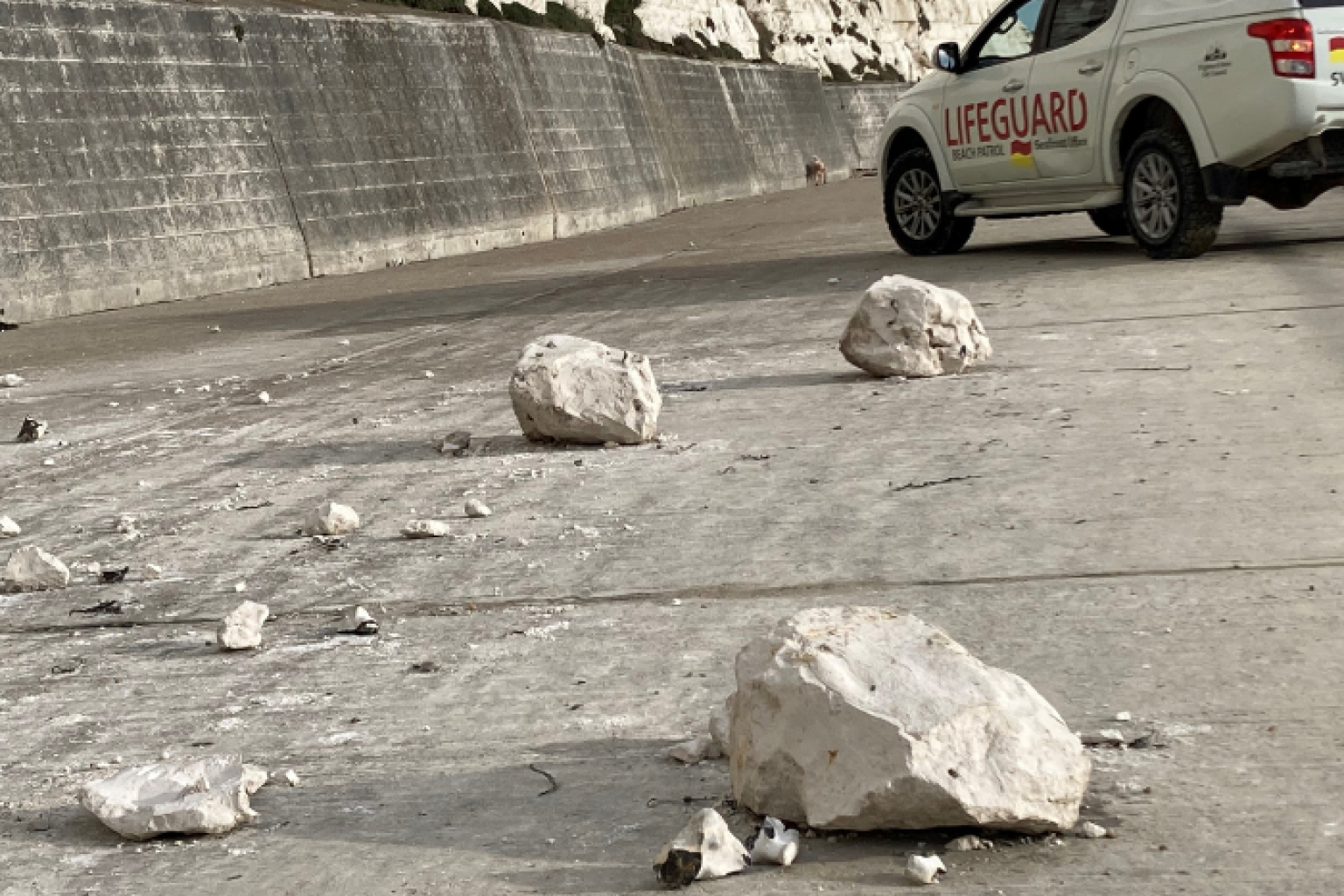A team of geotechnical specialists are to resume an inspection of Brighton’s chalk cliffs in September after rockfalls last winter closed the undercliff walk.
The path was closed in January after chunks of chalk kept falling onto it – described by one cyclist as if it had been “raining rocks”
CAN Geotechnical engineers scaled the cliffs in spring to remove loose chalk and flints so the path could reopen.
They will be abseiling down them once again in the autumn to continue work, and to carry out a geotechnical inspection so future risks are better understood.
CAN Geotechnical Project Manager Andy Pope said: “It is extremely satisfying for the team to work on a project of this nature. The chalk cliffs are part of our heritage and synonymous with the region and specifically Brighton.
“Our work here involves a two-pronged approach. The first priority is to make the area safe by identifying and removing any loose material (chalk and flints), which we are achieving by using light hand-scaling tools on an area of about 5,000 square metres.
“Once this has been completed, we will be carrying out a geotechnical inspection, which will provide a detailed report on the condition of the chalk face to give an informed assessment of the area.
“To ensure everyone can safely appreciate the beauty of the cliffs, we need to understand the extent and the nature of the erosion and the particular challenges this will create, especially in terms of public safety, given the use of the popular undercliff walk.”

The six-strong team used ropes to work at a height of 30 metres (ten storeys) from 20 February to 7 April, when work was paused for the bird-nesting season.
Andy said: “In terms of technical and safety considerations for a project like this, we’ve had to align our rigging at the crest to allow for the constant movement of ropes (two 50-metre ropes for each operative), which is essential to hand scale the cliff face. For our rigging, we are using 4×4 vehicles and 8T excavators.
“This means that, instead of installing anchors 660 millimetres deep into the chalk cliff tops, CAN operatives have used purposely immobilised 4×4 vehicles and the excavators to create rigging that is both safe and efficient, with minimal disruption to this sensitive environment.”
CAN, an RSK company, is working with RSK Geosciences on the project, with their colleagues responsible for the geotechnical inspection. CAN is carrying out the work for FM Conway as part of a project for Brighton and Hove City Council.









